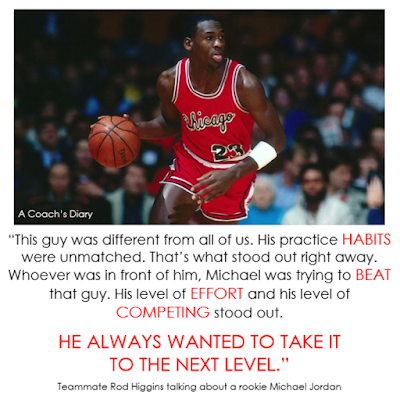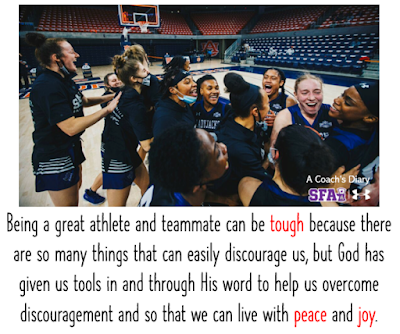I just read that Tiger Woods has the greatest golf winning percentage in golf of all time. He has won a record 22.8% of the matches that he has been in. The great Tiger Woods has lost over 3 out of 4 tournaments that he has played in.
Being perfect should not be the goal. Nobody is perfect. When something negative happens, we get the opportunity to show how to deal with and respond to adversity. We are all going to have adversity in our lives. Be a beacon of hope on how to appropriately handle adversity.
Your self-talk has to be strong to handle adversity; this is really important. You have to be able to bounce back from mistakes as quick as a ball bounces back off the floor or a tennis racket. Roger Federer, one of the best tennis players ever, only wins 55% of his tennis points. That means that he has had to learn how to manage losing 45% of the time.
We all have a strong voice and a weak voice. Your strong voice is the positive things that you tell yourself that help you capitalize on your strengths and fight through hard times. They are the productive things that you think about and tell yourself. Your weak voice is all the weak and negative things that you tell yourself. Think about and write down what you tell yourself. See how strong your strong voice and your weak voice are.
Take 60 seconds and write down your weak voice thoughts. Then take 60 seconds and write down your strong voice thoughts.
1 - Which side was easier for you to come up with?
2 - When you look at both sides, what do you think?
Some find it easier to come up with and think about the strong voice, and some find it easier to come up with and think about the weak voice.
Understand that even the very best in every profession have strong AND weak voices. The goal is to make sure that your strong voice has the last word. Train yourself to think that it is normal for us to have a weak voice and there are tendencies for when this voice speaks to us, and then challenge it to turn it into an inner coach that guides us.
If you talk to others the way that you talk to yourself when you are going through adversity, how would that look and sound? Some say that they wouldn't have any friends. Don't make yourself your own worst enemy. Turn your private voice into an inner coach that guides you through life; that is the ultimate gift because that is the voice that guides you every day.











